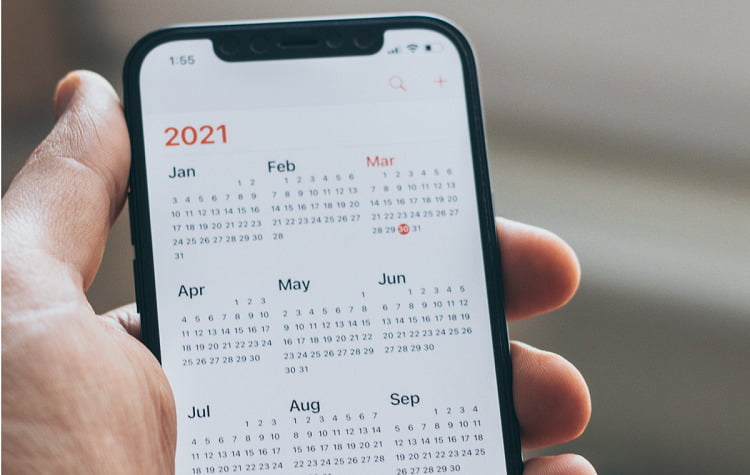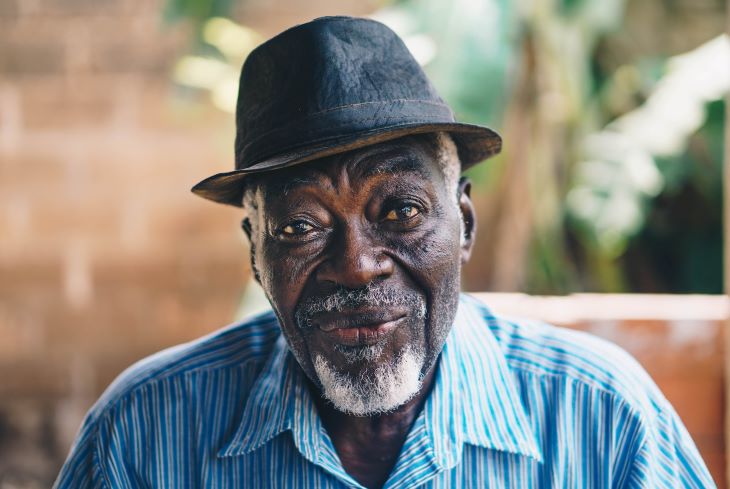Drug and Alcohol Rehab in Whitstable
Along the coast of Kent you’ll find Whitstable, a town famous for their delicious local oysters.
But don’t visit just for the food – many people have found that attending drug and alcohol rehab in Whitstable has changed their life for the better.
Drug and alcohol statistics in Whitstable

It’s thought that almost 1 in 20 people across Kent are extremely dependent on alcohol [1], a worrying statistic that could also point towards a greater strain on the NHS due to alcohol-related injury and illness.
Drugs are also an issue in the area, as by February 2023 there were already 33 drug-related arrests in Whitstable. [2]
Police recently intercepted a package of drugs that had been sent from America to Whitstable, with a large quantity of cannabis and Class A drugs found in the property after a search. [3]
At Rehab Recovery, we offer free advice from a team of non-judgemental professionals, many of whom are in recovery and understand how hard it can be to change your relationship with addiction.
For more information about rehab in Whitstable, simply reach out to our 24/7, confidential hotline on 0800 088 66 86.
What are the signs and symptoms of drug and alcohol addiction?

While addiction is a secretive disease, there are ways to see it in yourself and those you know well.
Addiction can manifest in a number of physical, psychological and behavioural symptoms, and some of these can be spotted right from the start. [4]
If you know what signs to look out for, you will be able to get help for yourself or someone you know sooner and potentially save a life.
Physical signs of addiction include:
- Often appearing under the influence of drugs or alcohol
- Lack of hygiene and personal grooming
- Difficulty sleeping, including insomnia and nightmares
- Developing one or more drug or alcohol-related illnesses
- Frequent injuries and accidents due to substance use
Psychological signs of addiction include:
- Frequent mood swings
- Increased anxiety
- Paranoia and psychosis
- Difficulty concentrating
- Memory loss
- Lowered self-esteem
Behavioural signs of addiction include:
- Becoming isolated and withdrawn from others
- Neglecting responsibilities and hobbies
- Lying to others about substance use
- Stealing from others to fund substance use
- Trying to stop using drugs or alcohol but being unable to
Having some of the above alcohol addiction symptoms does not necessarily mean that you have an addiction, but it’s a good idea to speak to your doctor to learn ways that you can improve your relationship with alcohol.
What happens during the initial assessment at drug and alcohol rehab in Whitstable?

The initial assessment is one of the most important aspects of drug and alcohol rehab in Whitstable, as it allow your medical team to better understand your physical and mental health condition and formulate an effective plan.
You will first meet with a doctor and undergo a medical interview. You will be asked about various aspects of your medical history including any pre-existing mental and physical health conditions as well as questions regarding your addiction.
You will then undergo various health checks including blood tests and addiction assessments to paint a picture of your individual needs.
Finally, you will receive a personalised treatment plan that you will follow throughout your time at rehab.
At Rehab Recovery, we offer free advice from a team of non-judgemental professionals, many of whom are in recovery and understand how hard it can be to change your relationship with addiction.
For more information about rehab in Whitstable, simply reach out to our 24/7, confidential hotline on 0800 088 66 86.
What happens at drug and alcohol rehab?

Detox
Most people with a substance use disorder will require a detox before you can begin counselling.
This is a 7-10 day process during which you will slowly reduce your intake of drugs or alcohol under medical supervision until you are no longer using them on the last day.
This can be easier to do than quitting cold turkey, and can also prevent some of the more dangerous withdrawal symptoms such as seizures and psychosis. [5]
Counselling
Addiction counselling is commonly though to be the most important aspect of drug and alcohol rehab in Whitstable.
You will spend a minimum of three weeks in counselling at rehab, and the work you will do depends on your experiences and individual needs.
Some people benefit from cognitive behavioural therapy (CBT) while others find family therapy more healing. The choice is yours and you will often be able to try out different types of therapy until you find one that best suits you.
How long does rehab last?

It may have taken you years to reach this point with your addiction, so it’s important to understand that it can take even longer to recover.
In fact, your time at drug and alcohol rehab in Whitstable is actually relatively short compared to the work you will need to put in once your treatment programme has ended.
You should expect to put aside at least 30 days for your treatment, with some people requiring a 60-day or even a 90-day programme.
You will use this time to undergo a full medical detox, attend addiction counselling for at least three weeks and create a relapse prevention plan to help you feel prepared and confident enough to re-enter the outside world.
Even once you leave rehab you will need to continue making your recovery your top priority, and make any necessary changes in your life that will help you to remain sober.
Addiction recovery is a life-long commitment that you will need to take one day at a time.
At Rehab Recovery, we offer free advice from a team of non-judgemental professionals, many of whom are in recovery and understand how hard it can be to change your relationship with addiction.
For more information, simply reach out to our 24/7, confidential hotline on 0800 088 66 86.
How much does drug and alcohol rehab in Whitstable cost?

We’ve found that the average cost of drug and alcohol rehab in Whitstable is around £495 per day.
This may fluctuate due to the cost of living crisis, but in general this is what you can expect to pay.
These figures mean that a 30-day treatment programme will cost around £15,000, a 60-day treatment programme will cost around £30,000 and a 90-day treatment programme will cost around £45,000.
Many people pay for addiction treatment out of their own savings, or donations made by friends and family members.
Others may claim on their health or employee insurance, apply for NHS-funded rehab or raise the funds online through crowdfunding websites.
Can I become addicted to prescription medication?

It’s important to understand that just because a medication has been prescribed to you by a doctor, this does not make it safe.
If they were safe to use without medical advice, they would be available over-the-counter. The addictive properties of these prescription medications are part of the reason why they are so highly regulated here in the UK.
Whenever you are prescribed a medication by your doctor you should research it to ensure you understand the risks and potential drawbacks, and ask them any questions you may have.
Some of most common addictive prescription medications include:
- Prescription opioids such as codeine, tramadol and co-codamol
- Prescription stimulants such as Adderall and Ritalin
- Prescription benzodiazepines such as Valium, Xanax and Librium
You should always follow the instructions given by your doctor and work with them to successfully wean off the medication once you no longer need it.
If you are using someone else’s prescription, obtaining multiple prescriptions or purchasing prescription medication online or from street dealers, you are putting yourself at a greater risk of addiction and/or overdose.
At Rehab Recovery, we offer free advice from a team of non-judgemental professionals, many of whom are in recovery and understand how hard it can be to change your relationship with addiction.
For more information about rehab in Whitstable, simply reach out to our 24/7, confidential hotline on 0800 088 66 86.
Is cannabis addictive?

There have been many debates over whether cannabis is addictive, and a number of studies have concluded that this substance is indeed psychologically addictive.
They have also found that up to 30% of people who use cannabis may be dependent on this drug in some way. [6]
While more studies are needed to determine whether cannabis is physically addictive, the psychological aspect has been proven.
You may experience cravings, irritability, mood swings and difficulty sleeping if you attempt to cut down or stop using cannabis completely.
In the UK, 11.5% of adults who use cannabis reported using it every day. This is an indicator of potential dependence and can also increase your risk of developing an addiction. [6]
You are also more likely to develop an addiction to cannabis if you begin using it at a young age, so the increase in young people and teenagers using cannabis is extremely concerning.
How can I stay sober after drug and alcohol rehab in Whitstable?

There are plenty of techniques that you can utilise to help you stay sober after drug and alcohol rehab in Whitstable.
One of the most important things that you can do is to build a community of caring and supportive people – this can be family, friends, a sponsor or people that you have met on your recovery journey.
This can help to prevent you from becoming isolated from others, which is one of the biggest predictors of relapse.
Below are some ways that you can stay sober after rehab:
- Organise regular counselling sessions
- Refer to your relapse prevention plan regularly
- Spend time with people who support your recovery
- Work on managing and avoiding your triggers
- Stay at a sober living facility for a few weeks or months after rehab ends
- Get involved with your rehab’s alumni programme
- Find a sponsor (or become one when you’re ready to!)
- Attend local support groups – Alcoholics Anonymous and Narcotics Anonymous are popular
- Prioritise your health – eat a nutritious diet, get enough sleep and exercise regularly
At Rehab Recovery, we offer free advice from a team of non-judgemental professionals, many of whom are in recovery and understand how hard it can be to change your relationship with addiction.
For more information, simply reach out to our 24/7, confidential hotline on 0800 088 66 86.

References
[2] https://crimerate.co.uk/kent/whitstable
[4] https://www.ihs.gov/asap/familyfriends/warningsignsdrug/
[5] https://www.ncbi.nlm.nih.gov/books/NBK64119/
[6] https://www.cdc.gov/marijuana/health-effects/addiction.html


